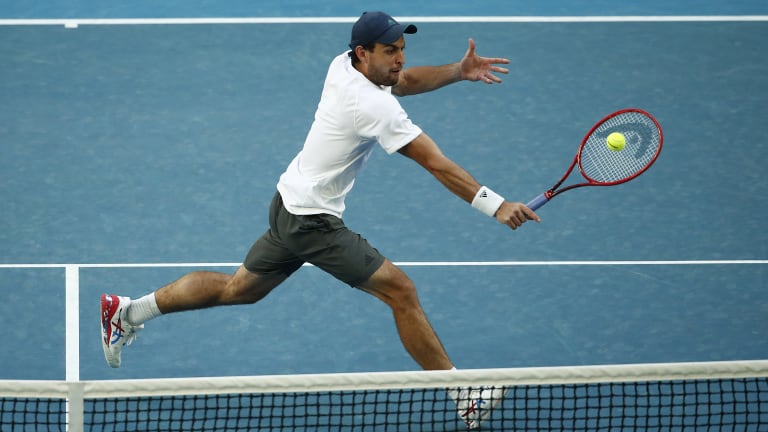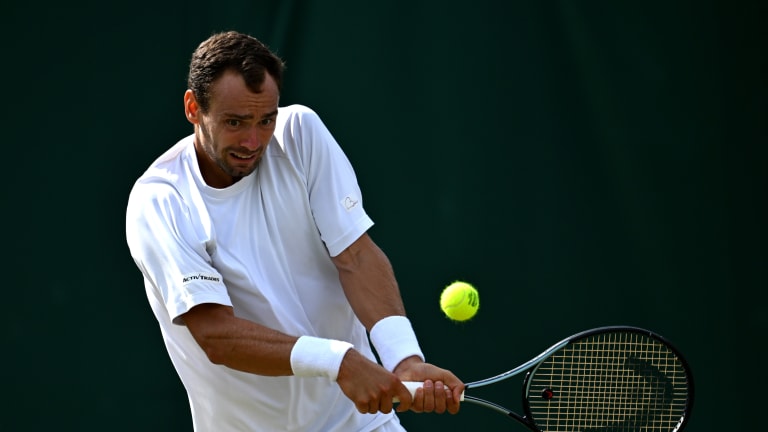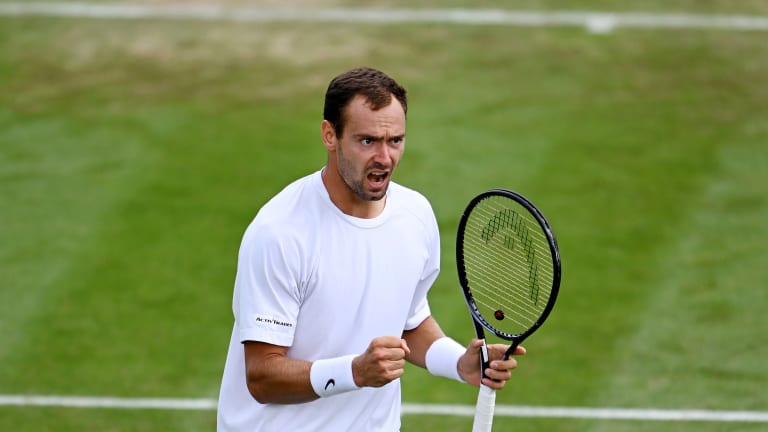Wimbledon
Roman Safiullin, trying to be the next Karatsev, earns praise from compatriot Medvedev and opponent Sinner
By Jul 11, 2023Wimbledon
Wimbledon to replace line judges with electronic line calling from 2025
By Oct 09, 2024Wimbledon
The amazing journey of Henry Patten from IBM data logger to Wimbledon doubles champion
By Jul 16, 2024Wimbledon
Hsieh Su-Wei, Jan Zielinski win mixed doubles title at Wimbledon
By Jul 15, 2024Wimbledon
Why Wimbledon Endures
By Jul 15, 2024Wimbledon
Novak Djokovic seeks 2024 answers for Alcaraz and Sinner after great effort: 4 ATP Wimbledon takeaways
By Jul 14, 2024Wimbledon
Carlos Alcaraz is a champion establishing how high he will climb with latest Wimbledon title
By Jul 14, 2024Wimbledon
Nicolai Budkov Kjaer makes history in winning junior boys' Wimbledon title; Renata Jamrichova wins girls' title
By Jul 14, 2024Wimbledon
Carlos Alcaraz beats Novak Djokovic again in Wimbledon final for fourth Grand Slam title
By Jul 14, 2024Wimbledon
For Jasmine Paolini, Barbora Krejcikova was one forehand and one serve too good in the Wimbledon final
By Jul 13, 2024Wimbledon
Roman Safiullin, trying to be the next Karatsev, earns praise from compatriot Medvedev and opponent Sinner
“When I knew that Roman is in my draw in juniors, I was shaking,” Daniil said last year.
Published Jul 11, 2023
Advertising

Safiullin's surprising run in Wimbledon recalls Karatsev's in Melbourne a few years back.
© Getty Images
Advertising

Medvedev, not just one of the world’s best players but a keen follower of the sport, said of Safiullin last week, “he has big talent.”
© Getty Images
Advertising
Advertising

Coach Kuznetsov made it a point to talk with Safiullin about his body language.
© Getty Images